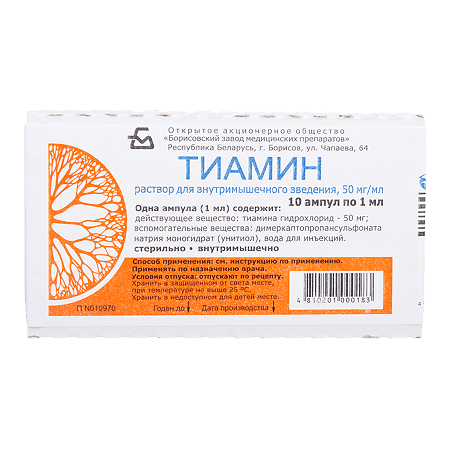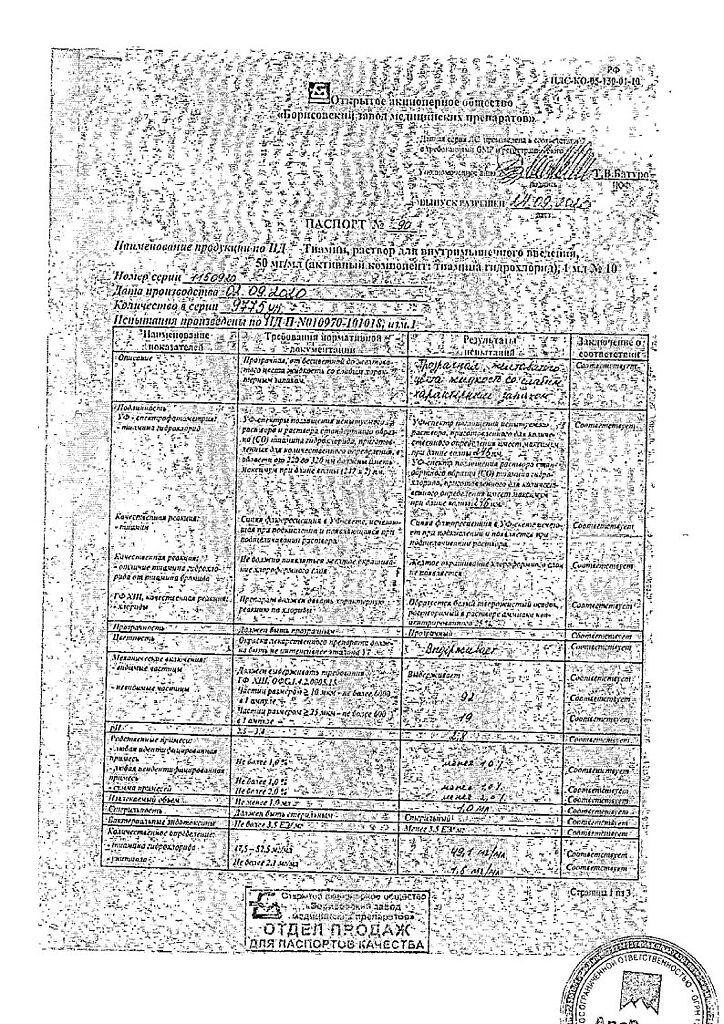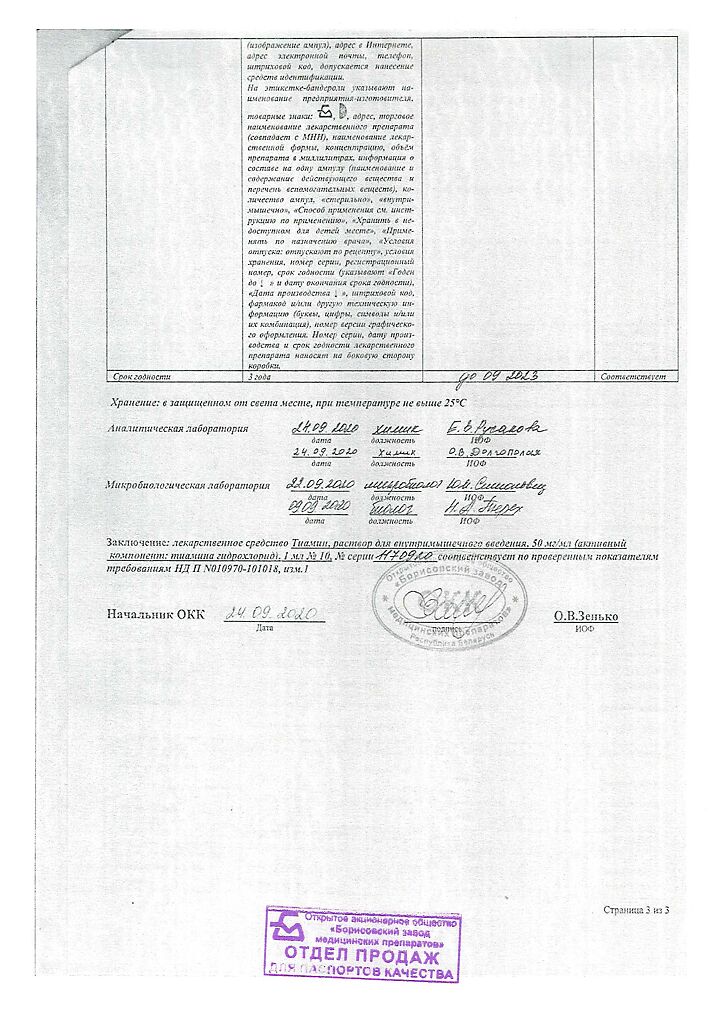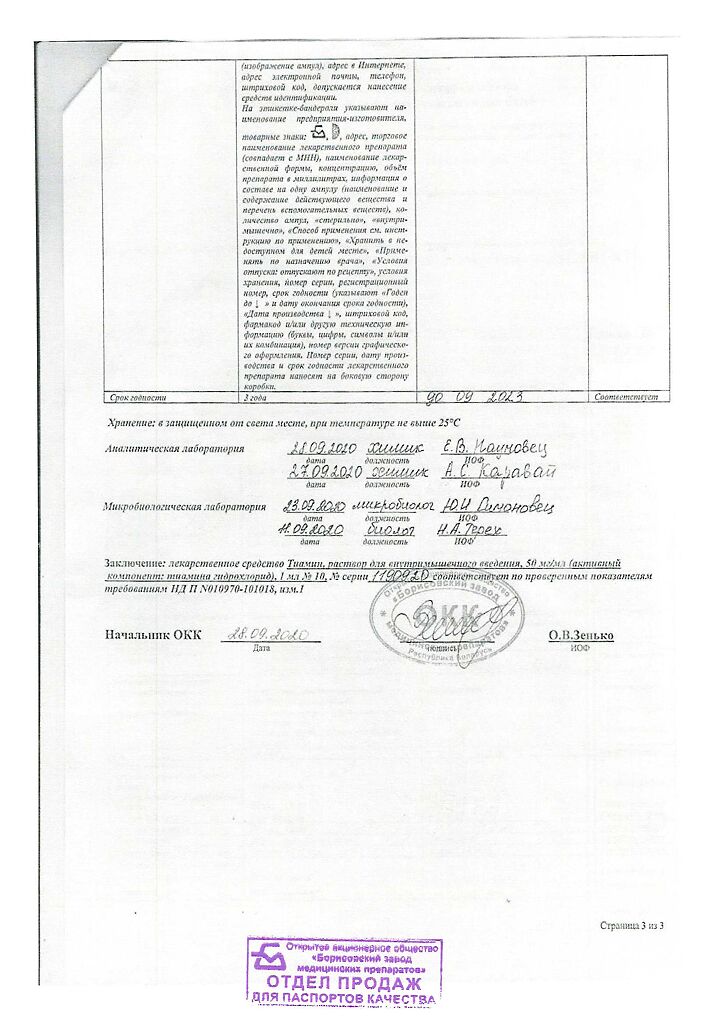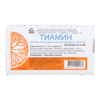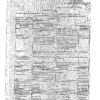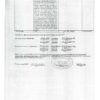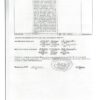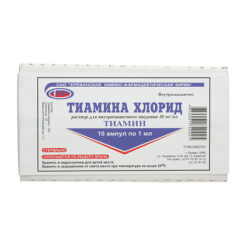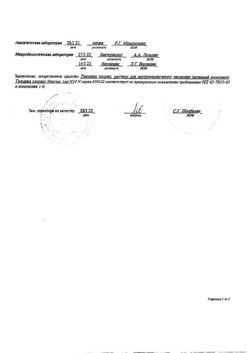No products in the cart.
Thiamine, 50 mg/ml 1 ml 10 pcs
€1.99 €1.66
Description
Thiamine is a vitamin B1, refers to water-soluble vitamins.
In the human body as a result of phosphorylation processes it is converted into cocarboxylase, which is a coenzyme of many enzymatic reactions.
Vitamin B1 plays an important role in carbohydrate, protein and fat metabolism as well as in the processes of nerve excitation in synapses.
Form of release
Form of release
Solution for intramuscular administration
Additional information
| Shelf life | 3 years. |
|---|---|
| Conditions of storage | Store in a place protected from light. |
| Manufacturer | Borisov Medical Preparations Plant, Belarus |
| Medication form | solution |
| Brand | Borisov Medical Preparations Plant |
Other forms…
Buy Thiamine, 50 mg/ml 1 ml 10 pcs with delivery to USA, UK, Europe and over 120 other countries.

